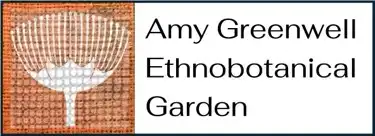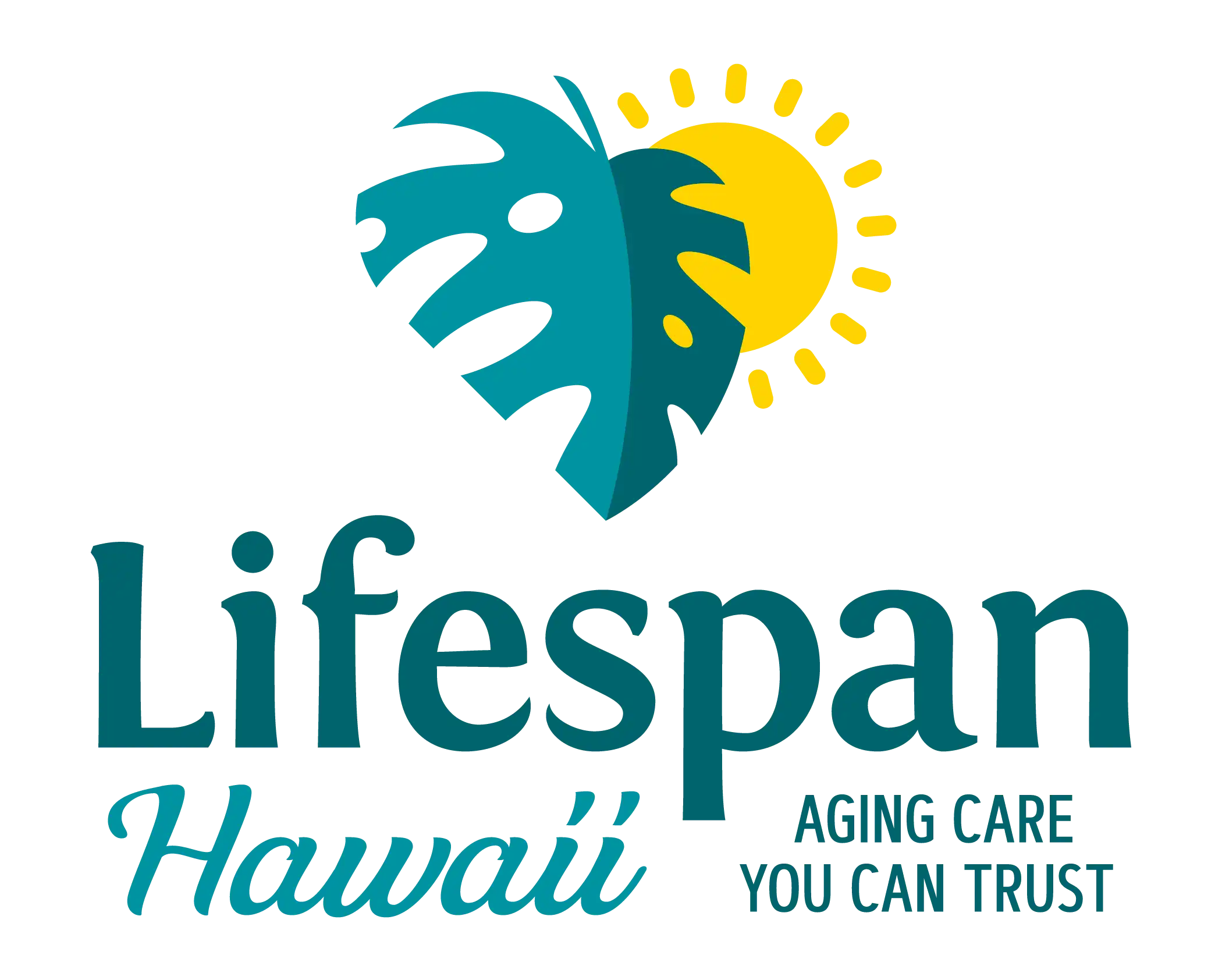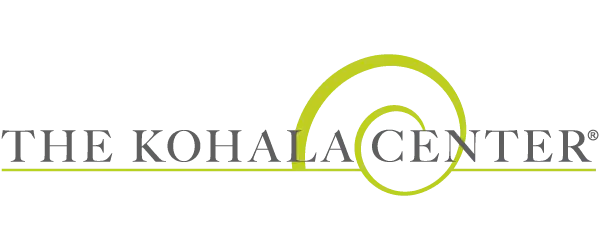Big Island nonprofit helps females deal with domestic violence, homelessness, substance abuse
Since February 2022, the Big Island nonprofit He Hoʻomaka Hou Ana O Puna has been offering a culturally responsive program, Haumana Kukākūkā, that is aimed at supporting female and female-identifying survivors of domestic violence, substance use disorders, homelessness and sexual trauma.
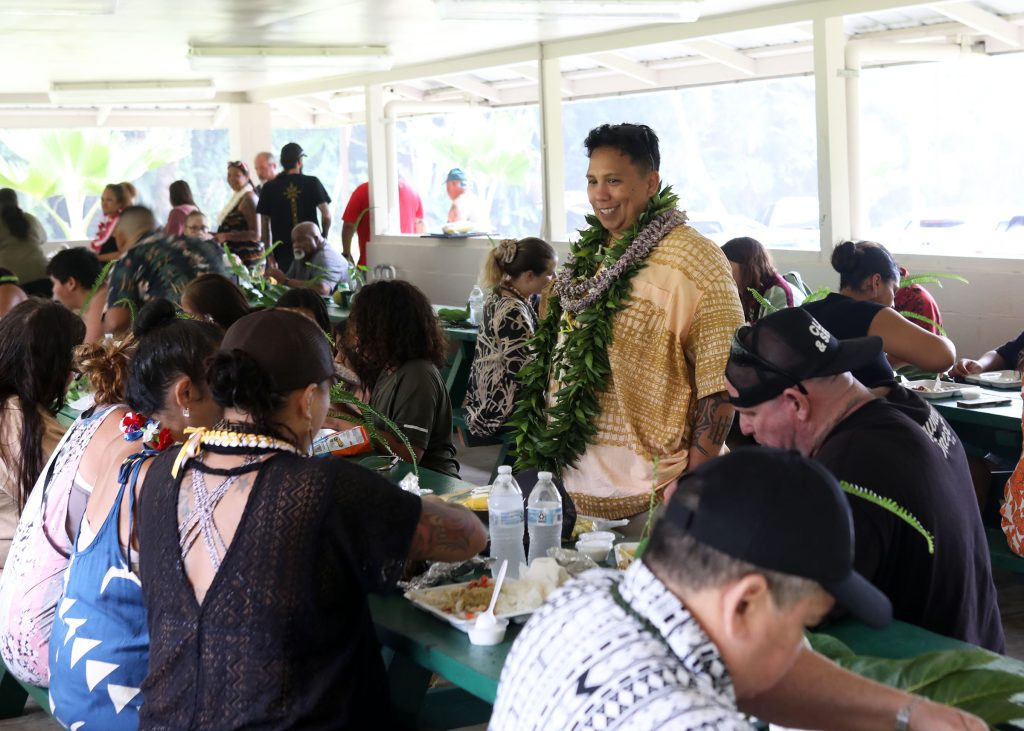
The first three years of the monthly support groups were funded privately by Cockrell Electric, with about 20 people helped through referral from HOPE Services Hawaiʻi.
In January, the Women’s Fund of Hawaiʻi awarded a $10,000 grant to He Hoʻomaka Hou Ana O Puna to help expand its program and allow self-referrals from women in need.
With that funding, Rivera has been able to better reach women in remote areas of Hawaiʻi Island, develop a mentorship initiative for past participants, and enhance community outreach efforts.
He Hoʻomaka Hou Ana O Puna also was awarded in January a Peer 2 Peer Grant for $75,000 by the National Center for Victims of Crime. This funding has allowed the organization to expand trauma-informed peer mentoring programs for survivors of crime, including domestic violence and sexual assault.
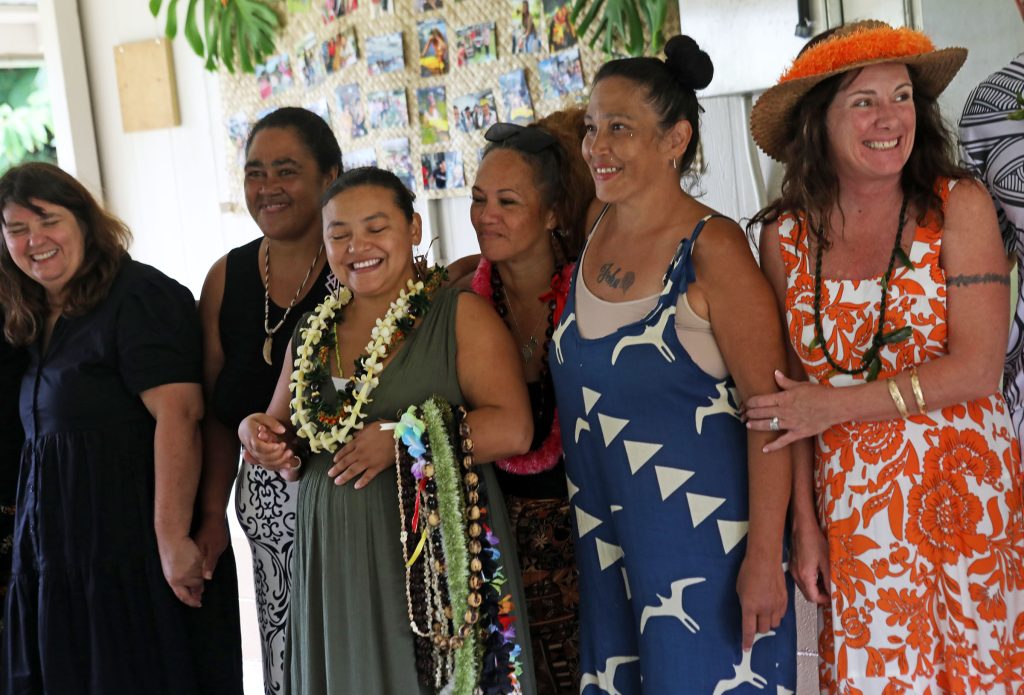
The main program creates a puʻuhonua (safe and culturally affirming space) that encourages kukākūkā (courageous conversations) to promote deep healing and resilience. Participants engage in group and one-on-one mentoring sessions to address intergenerational trauma and work toward individual and community healing.
“Healing is a ladder that we are climbing one step at a time,” said Renee Rivera, the program’s co-director and lead mentor. “Sometimes it feels like I’m starting over all the way at the bottom myself. There is no perfect mother, child, sister, friend. There is no perfect woman, but it’s okay, because there are other women we can lean on and learn from.”
Participants commit to regular kukākūkā sessions and complete required assignments, looking for solutions that lie within ancestral roots, including huakaʻi to wahi pana (trips to sacred or culturally significant spaces).
A 2024 study by the Hawaiʻi State Coalition Against Domestic Violence found that domestic violence is a prevalent problem in the state, with 18% of adult residents saying they have experienced physical violence or intimidation from an intimate partner and that the COVID-19 pandemic exacerbated the violence and isolation for some.
The study also found that Native Hawaiians and Filipinos experienced the highest rates of domestic violence in Hawaiʻi at 30% and 24%, respectively
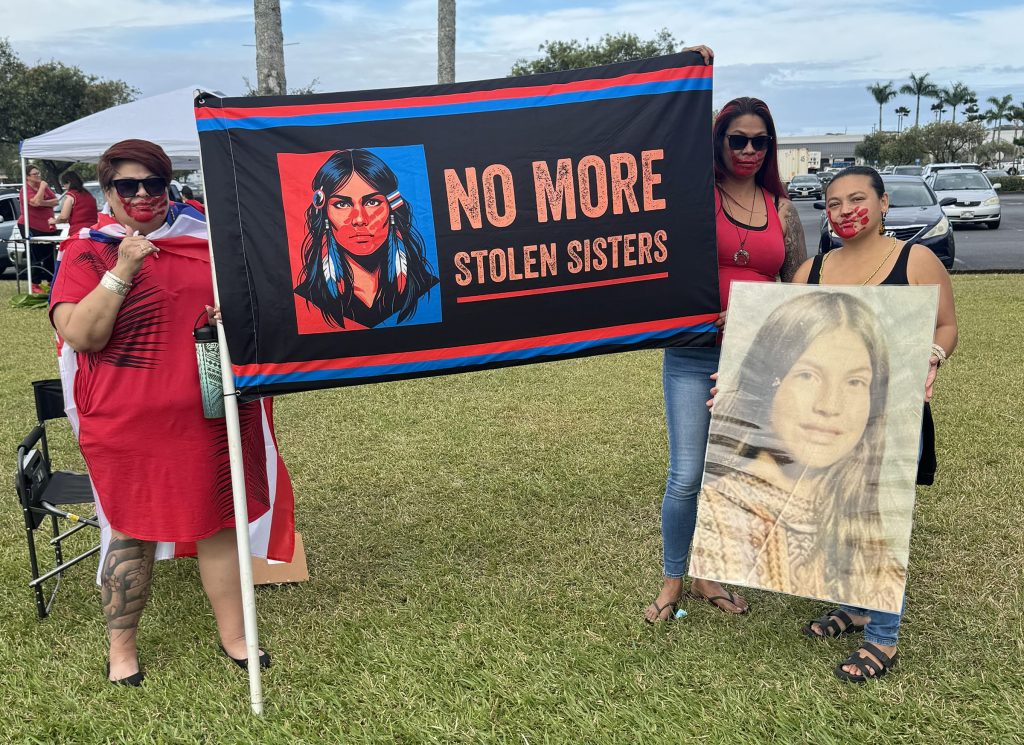
“Many Native Hawaiians have either lost touch or have never had access to their own culture, which we need in order to heal from past trauma and change the future for ourselves,” Rivera said. “Before anyone can rebuild their life, they have to be given the space to heal, and sometimes all they need is just one person to support her, teach her, and love her no matter what she’s experienced in life.”
Rivera brings lived experience as a Native Hawaiian survivor of homelessness, sexual assault, domestic violence and substance addiction. She hosts group sessions and has created a community of supportive wāhine who are able to heal, embrace Native Hawaiian culture even if they are not Native Hawaiian, and nourish themselves through food, outdoor activities and kukākūkā.
Jerry, who did not wish to provide her last name, said she has been in the Haumana Kukākūkā program for about a year and has experienced a transformation.
“I can’t pinpoint when it started, but it is a direct result from being part of this,” she said. “We are not with each other all the time, but the connections we make with each other are so strong and real that we are always connected. It is healing.”
Kodie, who also did not give her last name, joined Haumana Kukākūkā in October after experiencing a domestic incident that left her without a support system for emotional and mental strength.
“When you have people to lean on, it makes a big difference,” Kodie said. “We all have different stories, but our culture is what ties us all together, even for those who aren’t Hawaiian. Renee always tells us to keep showing up as you are. She reminds us that even if we aren’t flawless, we still matter.”
Jerry added: “We have hope and faith in one another, and we stand up with each other for a greater purpose. We’re always thinking of the next sister, and the next and the next that we can bring in to heal.”
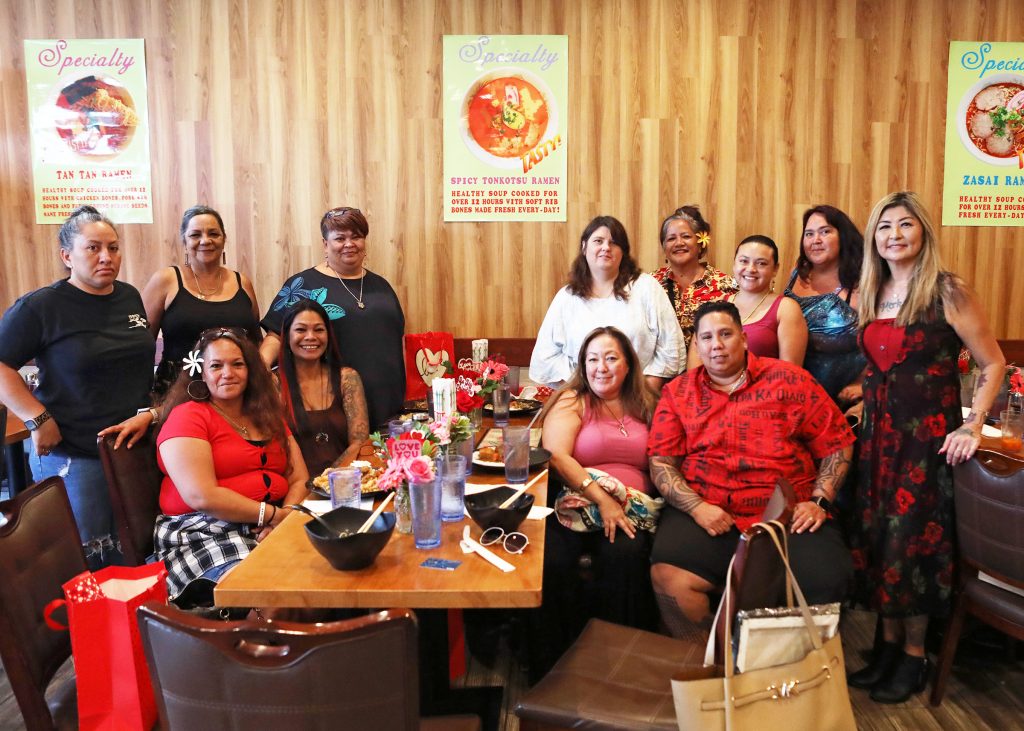
Rivera said she six women who have been in the program now attending college for the first time. She also has place a woman into housing after 16 years living on the street. And, a member of the support group a couple of years ago now is an intern with the program.
“I’m so proud of them and what we have been able to do together,” Rivera said. “We have been able to set a foundation for them, and I wish I could reach even more people.”
One of the first women to participate in the program said Rivera’s mentorship has completely changed her life at 56 years old.
“Renee has supported me through everything I have done,” said the woman who wished to remain anonymous. “She has pushed me to have higher expectations for myself and be a better version of me.
“I never thought my life would change, but now I have a sponsor, I’m on the drug court committee, and I went to college at 54. She helped me through it all.”
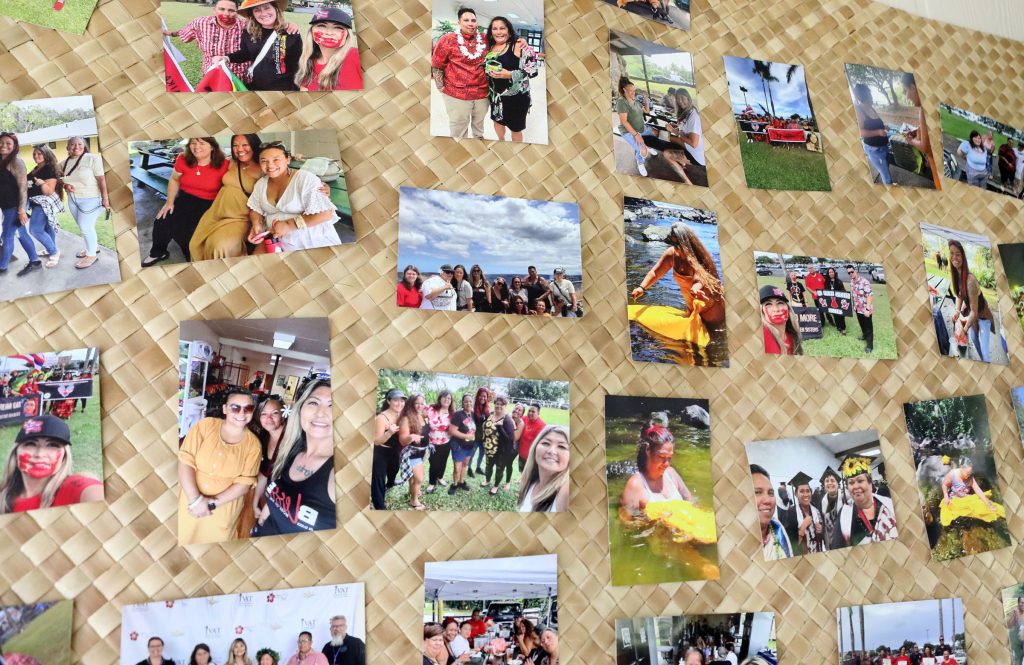
After facilitators, like Rivera and peer mentors, understand a person’s unique needs, they work with various local agencies to find housing, health care services, and mental and behavioral health services, as well as other programs or services that individual participants require.
“I’m so thankful that we have funders and community partners who believe in our vision,” said Jessica Ipina, director and founder of He Hoʻomaka Hou Ana O Puna. “We are creating pathways for women to heal, rebuild, and thrive.”
According to Ipina, the nonprofit will continue offering these important programs with the long-term goal of fostering individual and community-wide multigenerational healing.
“This was my way of giving back to my hānai family and the women who saved my life and changed its direction,” Ipina said. “I wouldn’t be here without them, and I feel just as committed to fostering this supportive environment that I see is making a difference.”
More information on Haumana Kukākūkā and the Peer to Peer mentoring can be found on the He Hoʻomaka Hou Ana O Puna website.




